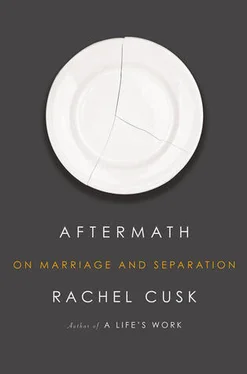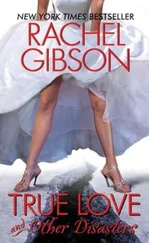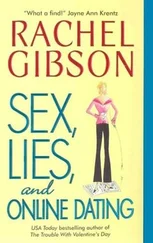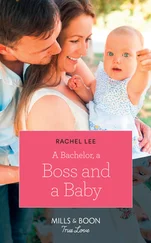Rachel Cusk - Aftermath - On Marriage and Separation
Здесь есть возможность читать онлайн «Rachel Cusk - Aftermath - On Marriage and Separation» весь текст электронной книги совершенно бесплатно (целиком полную версию без сокращений). В некоторых случаях можно слушать аудио, скачать через торрент в формате fb2 и присутствует краткое содержание. Год выпуска: 2012, Издательство: Farrar, Straus and Giroux, Жанр: Публицистика, Биографии и Мемуары, на английском языке. Описание произведения, (предисловие) а так же отзывы посетителей доступны на портале библиотеки ЛибКат.
- Название:Aftermath: On Marriage and Separation
- Автор:
- Издательство:Farrar, Straus and Giroux
- Жанр:
- Год:2012
- ISBN:нет данных
- Рейтинг книги:3 / 5. Голосов: 1
-
Избранное:Добавить в избранное
- Отзывы:
-
Ваша оценка:
- 60
- 1
- 2
- 3
- 4
- 5
Aftermath: On Marriage and Separation: краткое содержание, описание и аннотация
Предлагаем к чтению аннотацию, описание, краткое содержание или предисловие (зависит от того, что написал сам автор книги «Aftermath: On Marriage and Separation»). Если вы не нашли необходимую информацию о книге — напишите в комментариях, мы постараемся отыскать её.
Aftermath: On Marriage and Separation — читать онлайн бесплатно полную книгу (весь текст) целиком
Ниже представлен текст книги, разбитый по страницам. Система сохранения места последней прочитанной страницы, позволяет с удобством читать онлайн бесплатно книгу «Aftermath: On Marriage and Separation», без необходимости каждый раз заново искать на чём Вы остановились. Поставьте закладку, и сможете в любой момент перейти на страницу, на которой закончили чтение.
Интервал:
Закладка:
In the mornings I take my daughters to school and at mid-afternoon I pick them up again. I tidy their rooms and do laundry and cook. We spend the evenings mostly alone; I do their homework with them and feed them and put them to bed. Every few days they go to their father’s and then the house is empty. At first these interludes were difficult to bear. Now they have a kind of neutrality about them, something firm but blank, something faintly accusatory despite the blankness. It is as though these solitary hours, in which for the first time in many years nothing is expected or required of me, are my spoils of war, are what I have received in exchange for all this conflict. I live them one after another. I swallow them down like hospital food. In this way I am kept alive.
Call yourself a feminist, my husband would say to me, disgustedly, in the raw bitter weeks after we separated. He believed he had taken the part of woman in our marriage, and seemed to expect me to defend him against myself, the male oppressor. He felt it was womanly to shop and cook, to collect the children from school. Yet it was when I myself did those things that I often felt most unsexed. My own mother had not seemed beautiful to me in the exercise of her maternal duties: likewise they seemed to threaten, not enhance, her womanliness. In those days we lived in a village in the flat Suffolk countryside; she seemed to spend a great deal of time on the telephone. The sound of her voice talking as though to itself was mesmerising. To me her phrases sounded scripted, her laughter slightly artificial. I suspected her of using a special voice, like an actress. Who was she, this woman on the telephone? My mother was someone I knew only from the inside; I shared her point of view, seemed to dwell within her boredom or pleasure or irritation. Her persona was where I lived, unseeing. How could I know what my mother was? How could I see her? For her attention felt like the glance of some inner eye that never looked at me straight, that took its knowledge from my own private knowledge of myself.
It was only when she was with other people that, as a child, I was able to notice her objectively. Sometimes she would have a female friend round to lunch and then all at once there it would be, my mother’s face. Suddenly I could see her, could compare her to this other woman and find her better or worse, could see her being liked or envied or provoked, could know her particular habits and her atmosphere, which were not those of this other. At such times her persona, my dwelling-place, was inaccessible to me, darkened, like an empty house. If I knocked at the door I was curtly — sometimes roughly — despatched. Her body, usually so extensive, so carelessly ubiquitous, seemed to have been packed up and put away. And she too was locked out, relieved for a while of the business of being herself. Instead she was performing; she was pure story, told badly or well.
Her friends were generally mothers too, women whose geography I recognised, the sense of an enigma that lay all around their masks of make-up and talk like open countryside around a city. You could never get out into that countryside but you knew it was there. She did have one friend, Sally, who was different from the others. At the time I didn’t understand why, but now I do: Sally didn’t have children. She was a large woman, a wit, though her face was sad. You could walk around in the sadness of her mouth and eyes; it was open to everyone. She came once when my mother had made a chocolate cake, for which she tried to give Sally the recipe. Sally said, ‘If I made that cake I’d just eat the whole thing in one sitting.’ I had never heard of a woman eating a whole cake. It struck me as a tremendous feat, like weightlifting. But I could tell that my mother didn’t like this remark. In some obscure sense Sally had given the game away. Not knowing any better, she had opened up a chink in the tall wall of womanhood, and given me a rare glimpse of what was on the other side.
Of certain parts of life there can be no foreknowledge — war, for instance. The soldier going to war for the first time does not know how he will behave when confronted by an armed enemy. He does not know this part of himself. Is he killer or coward? When confronted he will respond, yet he doesn’t know in advance what his response will be.
My husband said that he wanted half of everything, including the children. No, I said. What do you mean no, he said. This was on the telephone. I looked out of the window at the garden, a rectangle among other urban rectangles, the boundaries prowled by cats. Lately our garden had become overgrown. The beds were drowning in weeds. The grass was long, like hair. But no matter how disorderly it became the grid would be undisturbed: the other rectangles would hold their shape regardless.
You can’t divide people in half, I said.
They should be with me half the time, he said.
They’re my children, I said. They belong to me.
In Greek drama, to traduce biological human roles is to court the change that is death, the death that is change. The vengeful mother, the selfish father, the perverted family, the murderous child — these are the bloody roads to democracy, to justice. The children belong to me: once I would have criticised such a sentiment severely, but of certain parts of life there can be no foreknowledge. Where had this heresy gestated? If it was part of me, where had it lived for all those years, in our egalitarian household? Where had it hidden itself? My mother liked to talk about the early English Catholics forced to live and worship in secrecy, sleeping in cupboards or underneath the floorboards. To her it seemed extraordinary that the true beliefs should have to hide themselves. Was this, in fact, a persecuted truth, and our own way of life the heresy?
I said it again: I couldn’t help myself. I said it to my friend Eleanor, that the children belonged to me. Eleanor has a job, is often away for weeks at a time; her husband takes over when she’s not there, putting their children to bed, handing them over to the nanny in the morning. Eleanor pursed her mouth and disapprovingly shook her head a little. Children belong just as much to their fathers as their mothers, she said. I said to my friend Anna, who has no job and four children, the children belong to me. Anna’s husband works long hours. She manages the children largely alone, as I now do. Yes, she said, they’re your children. You’re the one they need. They should be your number one priority.
It has existed in a kind of banishment, my flesh history with my daughters. Have I been, as a mother, denied? The long pilgrimage of pregnancy with its wonders and abasements, the apotheosis of childbirth, the sacking and slow rebuilding of every last corner of my private world that motherhood has entailed — all unmentioned, willfully or casually forgotten as time has passed, the dark ages on which I now feel the civilisation of our family has been built. And I was part of that pact of silence, in a way: it was a condition of the treaty that gave me my equality, that I would not invoke the primitivism of the mother, her innate superiority, that voodoo in the face of which the mechanism of equal rights breaks down. My own mother once wept at the supper table, wildly accusing us of never having thanked her for giving birth to us. And we joked about it later, cruel teenaged sophisticates. We felt uneasy, and rightly so: we had been unjustly blamed. Wasn’t it my father who should have thanked her, for giving form and substance, continuance, to himself? Instead his own contribution, his work, ran parallel to hers: it was she who had to be grateful to him, superficially at least. For years he had gone to the office and come back again, regular as a Swiss train, as authorised as she was illicit. The rationality of this behaviour was what irrationalised hers, for her womanhood was all imposition and cause, all profligacy, was a kind of problem to which his work was the solution. How could she expect gratitude for what no one seemed to think of as a gift? Through her we all of us served the cause of life: she was the exacting representative of our dumb master, nature. She gave, as nature gives, but we were not going to survive in nature on mere gratitude. We had to tame, to cultivate her gifts; and increasingly, we ourselves took all the credit for the results. We were in league with civilisation.
Читать дальшеИнтервал:
Закладка:
Похожие книги на «Aftermath: On Marriage and Separation»
Представляем Вашему вниманию похожие книги на «Aftermath: On Marriage and Separation» списком для выбора. Мы отобрали схожую по названию и смыслу литературу в надежде предоставить читателям больше вариантов отыскать новые, интересные, ещё непрочитанные произведения.
Обсуждение, отзывы о книге «Aftermath: On Marriage and Separation» и просто собственные мнения читателей. Оставьте ваши комментарии, напишите, что Вы думаете о произведении, его смысле или главных героях. Укажите что конкретно понравилось, а что нет, и почему Вы так считаете.












